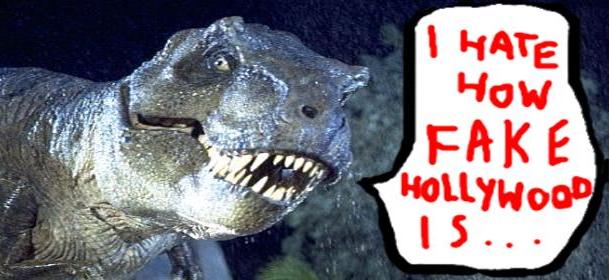
After the absolute knock-out that was The Wrestler, director Darren Aronofsky returns, having eschewed the violent but achingly sad story of Randy "The Ram" for the high pressure and dramatic intensity of ballet with Black Swan.
Natalie Portman is Nina, a ballerina who dreams of one day dancing the Swan Queen in Swan Lake. She certainly has the skill and precision to play the White Swan, but lacks the roughness and tenacity to portray the character's evil side, the Black Swan. When she is cast in the part, Nina is forced to discover her own inner "Black Swan", driven to, and possibly beyond, the brink of her sanity.
The first hour of Black Swan is excellent – highly atmospheric from the off, with a majestic, heart-pounding opening scene that immediately pulls the audience into the film's dark core. Portman is very impressive, completely believable throughout Nina's personal disintegration, with her initial composure and timidity heightening the character's dramatic fall, piling on the tension. The score is terrifically atmospheric, full of sorrow, foreboding and malice.
While the first two-thirds are certainly extremely well made and performed, it's during the closing 30 minutes that Black Swan ignites with a surge of blazing intensity, becoming an absolute tour-de-force of emotion, eye-popping visuals and sweaty-palmed panic as the genre shifts from drama-thriller to full-blown psychological horror.
Black Swan is completely relentless, with strong elements of Cronenbergian body-horror – it sometimes seems like The Fly with ballet dancers.
However, like the ballet itself, there is an assured epic sweep, a high sense of grandeur – Black Swan is a completely sensory experience, melodramatic and overblown. That's a compliment.
Visually, Black Swan is absolutely jaw-dropping, from the costumes and sets of Swan Lake to the choppy editing in a pulse-pounding club scene, which, while totally jarring at first, incidentally becomes one of the standout moments. Aronofsky's trademark use of handheld cameras gives a visceral intimacy to the ballet sequences.
Despite looking at a completely different form of physical performance, strong thematic parallels can be seen between Black Swan and The Wrestler, particularly the fear of becoming obsolete and the bodily risks undertaken by performers. At times the dual imagery of the White and Black Swans is laid on a tad too thickly – mirrors are ever-present, becoming increasingly fragmented as Nina's psyche does, while images of swans, Rorschach blotches and doppelgangers abound, at times a little too obviously.
However, this is a sole and slight criticism of a genuinely astonishing film. Vincent Cassel and Mila Kunis turn in strong performances, but this is Portman's show. The roaring power of Black Swan's denouement will leave audiences breathless, terrified and ultimately speechless, with a spine-chilling, heart-stopping conclusion that lingers long in the memory. Black Swan is a highly deserving awards contender that needs to be seen in the cinema, and offers as much to the horror crowd as it does to ballet fans.
Natalie Portman is Nina, a ballerina who dreams of one day dancing the Swan Queen in Swan Lake. She certainly has the skill and precision to play the White Swan, but lacks the roughness and tenacity to portray the character's evil side, the Black Swan. When she is cast in the part, Nina is forced to discover her own inner "Black Swan", driven to, and possibly beyond, the brink of her sanity.
The first hour of Black Swan is excellent – highly atmospheric from the off, with a majestic, heart-pounding opening scene that immediately pulls the audience into the film's dark core. Portman is very impressive, completely believable throughout Nina's personal disintegration, with her initial composure and timidity heightening the character's dramatic fall, piling on the tension. The score is terrifically atmospheric, full of sorrow, foreboding and malice.
While the first two-thirds are certainly extremely well made and performed, it's during the closing 30 minutes that Black Swan ignites with a surge of blazing intensity, becoming an absolute tour-de-force of emotion, eye-popping visuals and sweaty-palmed panic as the genre shifts from drama-thriller to full-blown psychological horror.
Black Swan is completely relentless, with strong elements of Cronenbergian body-horror – it sometimes seems like The Fly with ballet dancers.
However, like the ballet itself, there is an assured epic sweep, a high sense of grandeur – Black Swan is a completely sensory experience, melodramatic and overblown. That's a compliment.
Visually, Black Swan is absolutely jaw-dropping, from the costumes and sets of Swan Lake to the choppy editing in a pulse-pounding club scene, which, while totally jarring at first, incidentally becomes one of the standout moments. Aronofsky's trademark use of handheld cameras gives a visceral intimacy to the ballet sequences.
Despite looking at a completely different form of physical performance, strong thematic parallels can be seen between Black Swan and The Wrestler, particularly the fear of becoming obsolete and the bodily risks undertaken by performers. At times the dual imagery of the White and Black Swans is laid on a tad too thickly – mirrors are ever-present, becoming increasingly fragmented as Nina's psyche does, while images of swans, Rorschach blotches and doppelgangers abound, at times a little too obviously.
However, this is a sole and slight criticism of a genuinely astonishing film. Vincent Cassel and Mila Kunis turn in strong performances, but this is Portman's show. The roaring power of Black Swan's denouement will leave audiences breathless, terrified and ultimately speechless, with a spine-chilling, heart-stopping conclusion that lingers long in the memory. Black Swan is a highly deserving awards contender that needs to be seen in the cinema, and offers as much to the horror crowd as it does to ballet fans.
Entertainment Value: 5/5
Genre Value: 5/5
Style: 4.5/5
Overall Rating: 5/5

No comments:
Post a Comment